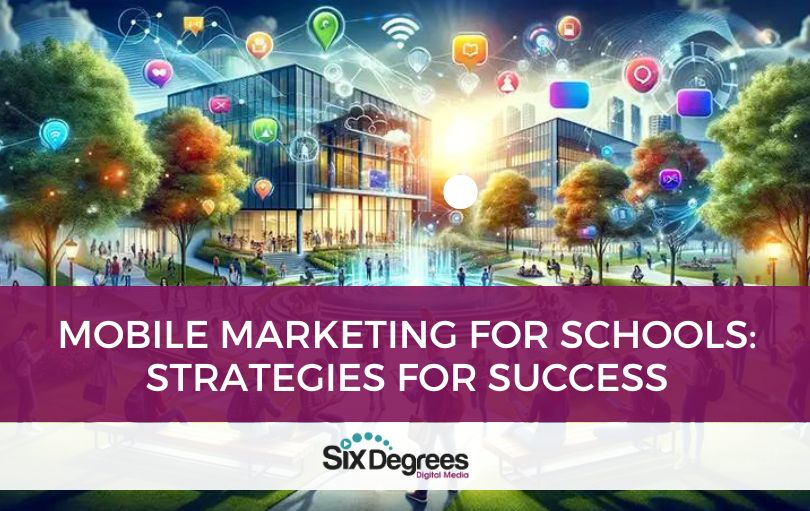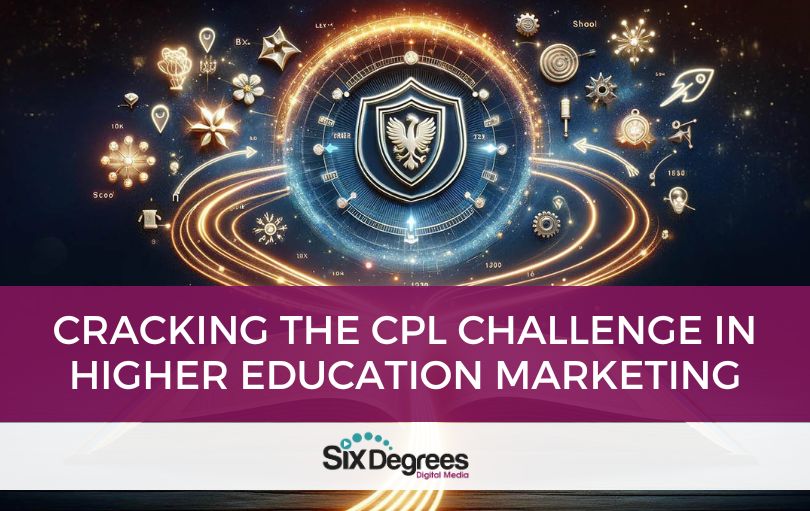How do you convince prospective students that your career school is the key to their successful future?
Even more so when a few, let’s say, “less-than-reputable” institutions have muddied the waters.
Enter the power of testimonials!
Think of them as your trusty sidekicks, ready to vouch for the transformative education you offer and how it propels students into a thriving workforce. They’re not just about singing your praises, but also about painting a realistic picture of the success that awaits prospective students.
And guess what? These testimonials can significantly boost enrollment and build up your school’s trustworthiness.
But how do you harness this power effectively for lead generation? In this blog post, we’ll light the way, showing you how to collect and optimize testimonials, with a particular focus on video testimonials.
Let’s dive in and add an exciting new dimension to your marketing arsenal!
The Power of Testimonials in Marketing Strategies for Career Schools
Testimonials are a potent form of social proof. When prospective students see testimonials, they see real people who have walked the path they’re considering and have come out better for it. They’re not just hearing from your institution about how great it is; they’re hearing it from someone who’s been in their shoes.
In marketing, we often talk about selling the transformation.
In the context of higher education lead generation, it means showing prospective students the positive changes they can expect from attending your school.
Testimonials serve as evidence of this transformation, allowing prospects to envision their own potential success.
For example, a testimonial from a graduate now running a successful small business after completing your Entrepreneurship program paints a vivid picture of the transformation your institution can provide. This relatable narrative builds trust, enhances your institution’s credibility, and makes the decision-making process easier for potential students.
Key Takeaway:
Let your current students and alumni do all the heavy lifting for your marketing campaigns by putting great testimonials front and center.
Testimonials vs. Reviews in Marketing Strategies for Career Schools
While testimonials and reviews both offer valuable social proof, they have different levels of effectiveness in your student recruitment strategies.
Testimonials
Testimonials are positive endorsements that you actively solicit from students or alumni. They are typically curated and used directly in your marketing materials, such as on your website, in brochures, or in social media posts.
Testimonials are powerful because they are specific and detailed, often highlighting the unique aspects of your institution or program that have had a significant impact on the student or alumni’s educational journey or career. They provide a narrative and personal touch, allowing prospective students to envision themselves having a similar positive experience at your institution.
Testimonials are often more controlled than reviews, as you can choose the best ones to showcase, and you can guide the testimonial giver on the points you’d like them to cover.
However, it’s important to ensure that testimonials are authentic and genuine, as savvy consumers can often tell when a testimonial has been overly scripted or fabricated.
Reviews
Reviews, on the other hand, are left independently by students or alumni on third-party platforms like Google, Yelp, or niche review sites like Niche or College Confidential.
Unlike testimonials, you can’t control what is said in reviews, but they offer a more unfiltered and broad perspective of student experiences at your institution.
Reviews can be both positive and negative, and it’s important to monitor them closely. Responding to reviews, particularly negative ones, shows that you value feedback and are committed to improving the student experience.
Positive reviews can be highlighted and shared but remember that third-party platforms have rules about how you can use these reviews, so always make sure to follow their guidelines.
By understanding the differences, you can strategically use both testimonials and reviews to bolster your institution’s reputation and credibility.
Collecting Testimonials to use in Marketing Strategies for Career Schools
Asking for testimonials may seem daunting, but it can be as simple as sending an email to recent graduates or posting a call on your institution’s alumni Facebook group. For video testimonials, assure your participants they don’t need professional filming equipment. A well-lit, quiet room and a smartphone are often enough.
Provide participants with a ‘testimonial cheat sheet,’ featuring tips for capturing a great testimonial. This might include:
- Ensuring the camera is steady, perhaps using a tripod or a stack of books.
- Checking the lighting to make sure their face is clear and easy to see.
- Suggesting they dress in a way that’s consistent with their profession, highlighting the career success they’ve achieved.
- Recommending they speak naturally and from the heart.
Testimonial marketing in higher education is a structured, strategic initiative to gather and utilize student and alumni testimonials. Here’s how you can craft one:
- Set a Timeline: Decide when you’ll begin your outreach for testimonials and when you’d like to start implementing them in your marketing materials.
- Determine Goals: What do you hope to achieve with your testimonials? This could be boosting enrollment numbers, increasing brand credibility, or highlighting specific programs.
- Outreach Methods: Identify how you will ask for testimonials. This might be through direct emails, social media posts, or an announcement on your institution’s website.
Remember, the objective of your testimonial marketing in higher education should be to collect authentic, inspiring stories that can boost your institution’s image and attract new students.
Key Takeaway:
Don’t just wait for someone to offer a testimonial. Seek them out and help facilitate them to ensure you get great content you can use in your marketing campaigns.
Legal and Ethical Considerations for Using Testimonials in Marketing Strategies
When collecting and using testimonials, you must consider certain legal and ethical guidelines:
- Permissions: Always ask for permission before using a testimonial in your marketing materials. This could be a simple consent form or email confirmation.
- Privacy: Be careful not to disclose any private or sensitive information. Stick to the participant’s first name and their course or program unless they’ve given explicit permission to share more.
- Authenticity: Never alter a testimonial to make it more flattering. It’s important to maintain the integrity of the person’s original message to stay truthful and authentic.
Prompting Great Testimonials for Your Career School
To help your participants provide meaningful testimonials, provide them with example questions or prompts:
- What was your biggest challenge before attending our school, and how did our programs help overcome it?
- Can you share a specific instance where our school’s faculty or services made a difference in your educational journey?
- How has your life or career improved as a result of our school’s programs?
The key is to encourage participants to delve deeper into their experiences, offering personal and specific examples that will resonate with prospective students.
Where to Use Testimonials in Marketing Strategies for Career Schools
Strategically placing testimonials can maximize their impact.
- Website: This is often the first point of contact for potential students. Place testimonials on key pages such as the home page, about us page, or specific program pages.
- Email Campaigns: Including testimonials in emails to prospective students can add an element of trust and credibility.
- Social Media: Regularly sharing testimonials on your social media platforms keeps your audience engaged and continually reinforces the success of your students.
Each platform offers unique benefits. While website testimonials can sway potential students in the consideration stage, social media testimonials can reach wider audiences and increase brand awareness.
Testimonials should be shared across multiple platforms for a wider reach and increased brand awareness.
Video Testimonial Best Practices
Video testimonials are particularly compelling for career school marketing strategies, because they offer a visual and emotional connection. Here are some best practices for creating effective video testimonials:
- Keep it Short and Sweet: Aim for 1-3 minutes to keep your audience engaged.
- Quality Matters: While you don’t need professional equipment, ensure the video is clear and audio is audible.
- Make it Personal: Encourage the participant to speak openly and naturally, making the testimonial relatable.
- Use B-Roll: Cutaways to relevant images or clips can add context and keep viewers engaged.
Marketing Strategies that Boost Enrollment Rates for Career Colleges
Imagine a world where prospective students can envision a rewarding educational journey at your institution, and where they are inspired to take action and enroll.
This is the power of testimonials used strategically in your student recruitment strategies. They not only build trust but also paint a realistic picture of the success that awaits prospective students.
Now, imagine having a partner who can guide you through this process, who understands the unique challenges of creating successful marketing strategies for career schools, and who is passionate about helping you increase enrollment. That’s where we come in. At Six Degrees Digital Media, we’re here to help you navigate the complexities of higher education marketing and to turn your vision into reality.
Ready to transform your marketing strategy and boost your enrollment rates? Contact us today for a free strategy session. Let’s work together to create a compelling narrative for your institution that resonates with your audience and inspires action.









